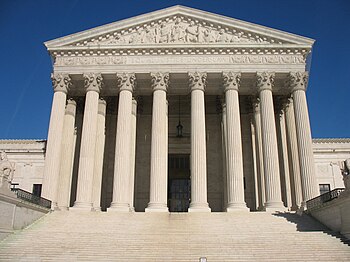| English: The Supreme Court of the United States. Washington, D.C. (Photo credit: Wikipedia) |
This post was inspired by a discussion during a presentation by Professor Mark Weber at the recent conference at Seattle University at the Academy for IDEA hearing officers. It was also inspired by a law review article by Professor Weber: Mark
C Weber, “Common-Law Interpretation of Appropriate Education: The Road Not
Taken in Rowley,” 41 Journal of Law & Education 95 (January 2012); also
available at the SSRN. Professor Weber has a lot to answer for!
The standard for FAPE was articulated by the seminal Rowley decision of the Supreme Court. At least 75% of the IDEA cases involve FAPE. But IDEA cases can involve four issues: FAPE; placement (LRE, discipline; etc); evaluation, and identification (child find, eligibility, etc.) IDEA, § 615(b)(6). Hearing officers and judges tend to generically refer to all violations of IDEA as a denial of FAPE. For example, you may see an issue stated as - did the district deny FAPE to the student by improperly evaluating him on... An evaluation violation is not a FAPE question, but we lump everything into FAPE sometimes and that is not accurate.
So does the Rowley basic floor standard apply in these other kinds of cases? The circuit courts of appeal have addressed standards for some of the elements of the other three violations (eg, LRE or child find), and my view is that the Rowley analysis is inapplicable. I'm not sure that the legal standard gets a lot of analysis in these other cases though. What do you think?















No comments:
Post a Comment